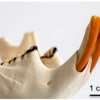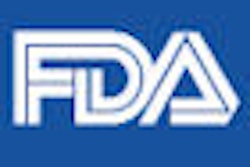
In the ongoing controversy over dental amalgam, Costa Mesa, CA, has become the first U.S. city to call for a ban on dental amalgam, urging federal and state agencies to eliminate the substance.
The city council unanimously approved the resolution on October 19. While it does not actually ban amalgam, it is "an important step toward ending this health and environmental scourge," according to Charles Brown, national counsel for Consumers for Dental Choice.
— Gary Monahan, Costa Mesa
City Council
Among other things, the resolution:
- Calls on federal and state agencies to eliminate amalgam.
- Asks dentists in Costa Mesa to cease using mercury and switch to nontoxic alternatives.
- Requests that the other 33 cities in Orange County join Costa Mesa in opposing dental mercury.
"With the emergence of alternative materials like composite, and the growing public alarm over exposure to mercury, a neurotoxin, amalgam has come into increasing disfavor," the city noted in a press release.
Several state and federal agencies have already adopted cautionary measures regarding amalgam's use. A California law requires that patients be informed that dental amalgam "causes birth defects or other reproductive harm," and the Dental Board of California requires dentists to distribute a fact sheet to each patient disclosing amalgam's risks. The U.S. Environmental Protection Agency announced this month that it will require dentists to install amalgam separators in their offices, and the U.S. FDA will hold hearings in December to review scientific issues that may affect amalgam regulation.
Community benefits
Council Member Gary Monahan, who sponsored the resolution, said it "is good for consumers, good for dentists, and good for taxpayers" and that consumers have long been deceived by the term "silver fillings." He pointed to a 2006 Zogby poll showing that more than 80% of Californians would pay more to get nonmercury fillings, but only 40% knew that amalgam's main component is mercury.
Dentists and dental workers also will benefit, Monahan said, because without mercury vapors, dental offices will be a much safer workplace environment. And the resolution sends a powerful message to the insurance industry, he added.
"We will do all we can to change insurance contracts, which currently favor amalgam use, a step that will accelerate the end of amalgam," he said.
Taxpayers and water rate payers will benefit as well because the main source of mercury in wastewater, which must then be cleaned up, is dental mercury, Monahan noted.
"The solution to amalgam is ending its use at the source," he said.
Brown hopes the FDA will consider the resolution during its upcoming hearing into the issue. "This action will help the FDA realize that it increasingly stands alone in the world in protecting the use of mercury fillings," he told DrBicuspid.com.
The ADA has asserted that dental amalgam is safe. "Based on extensive studies and scientific reviews of dental amalgam by government and independent organizations worldwide, the ADA believes that it remains a valuable, viable, and safe choice for dental patients," the organization said in a 2008 statement following the settlement of a lawsuit brought against the FDA that unsuccessfully sought to have mercury fillings banned from the U.S. market.
Brown discounted the ADA's stance, saying it is protecting the profits of it members. "Dentists make more per chair per day with mercury instead of composite or resins," he said.
Copyright © 2010 DrBicuspid.com



















